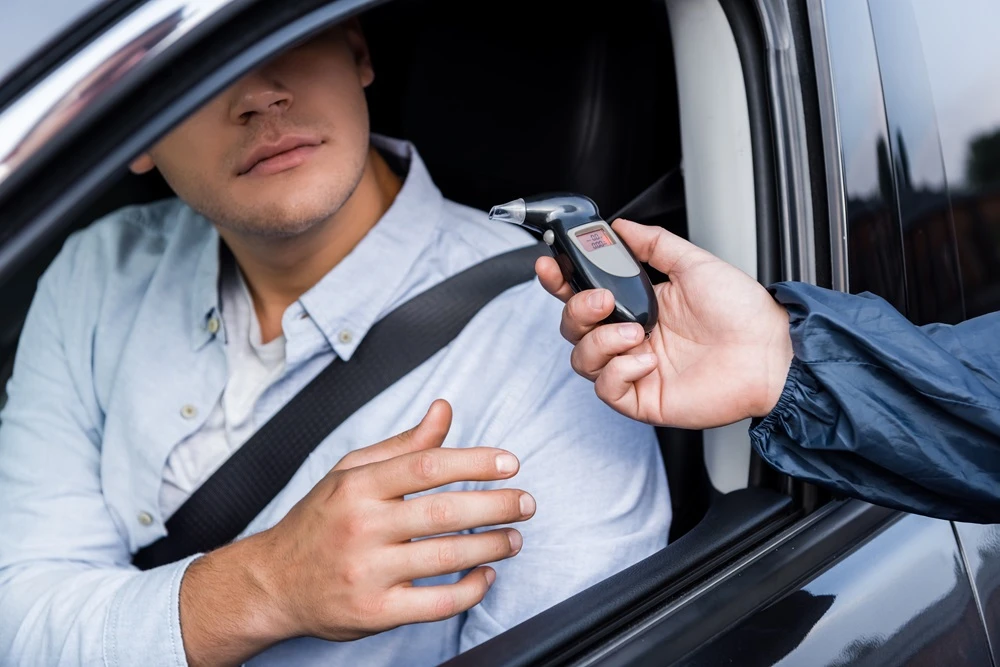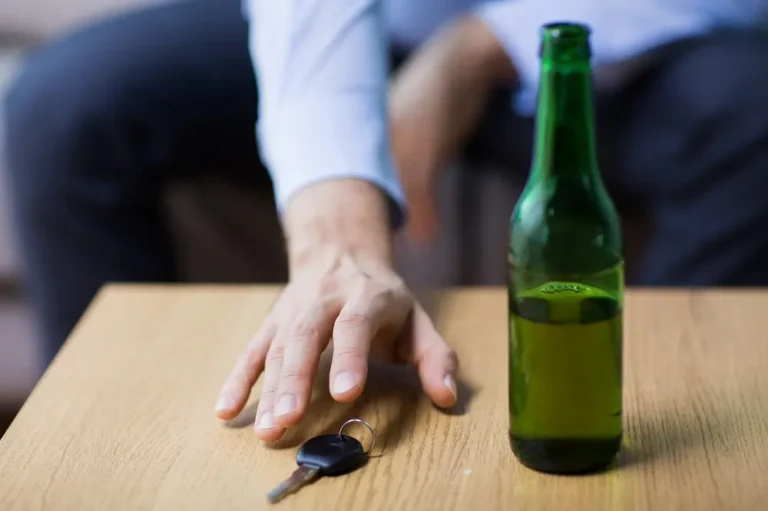A conviction for operating a vehicle impaired (OVI) has serious consequences in Ohio. Even first offenders can face mandatory jail time and other penalties. Knowing how to get out of an OVI in Ohio could preserve your freedom and keep your criminal record clear.
These charges might seem insurmountable because the state’s evidence often includes scientific tests and police officer testimony. However, an experienced OVI defense attorney can challenge test results and undermine police officers’ testimony. Additionally, a criminal defense attorney can raise constitutional objections to everything from the initial stop to any allegedly incriminating statements you made.
Contact Gounaris Abboud by calling (937) 222-1515 or completing our online form to learn how we can help you overcome OVI charges.
When to Challenge OVI Charges
It’s essential to consider hiring a criminal defense lawyer to challenge your OVI arrest as early as possible. If your lawyer presents the right evidence to the police, the prosecution might refrain from filing charges.
If the case goes ahead, you still have chances to raise defenses. However, taking quick action to preserve evidence and gather testimony is key. If you wait too long, documents may disappear, and memories may fade.
For example, if your defense depends on the miscalibration of a breathalyzer test device, your lawyer needs maintenance records. Prompt action helps the lawyer get the evidence they need.
Recognizing the Risks of an OVI Charge
After an Ohio OVI conviction, a judge can impose a sentence that may include the following:
✓ Jail time
✓ Fines
✓ Driver’s license suspension
✓ Probation
✓ Mandatory drug or alcohol treatment
✓ Ignition interlock device on your vehicle
Additionally, your OVI charges can appear on your criminal record, blocking you from certain jobs. You can find the specific sentence you face on the OVI Ohio penalty chart based on your number of prior convictions for OVI and your blood alcohol content (BAC).
How to Beat an OVI Charge
The prosecution has the burden of proof in a criminal case. This means they must have evidence proving every element of the offense. The jury cannot convict the defendant if the prosecution lacks evidence beyond a reasonable doubt. Thus, your lawyer must prepare an OVI defense Ohio jurors will accept.
The defenses to secure an Ohio OVI dismissal or not-guilty verdict usually take a few forms. For example, your lawyer can attack the prosecution’s evidence, leaving the charges without factual support. A defense attorney can also introduce exculpatory or mitigating evidence that explains away the prosecutor’s case.
Finally, your lawyer can raise procedural issues that call into question the fairness of the investigation and arrest.
Fight Unlawful Traffic Stops and Searches

The U.S. Constitution protects you from unreasonable searches and seizures. This means a police officer must follow certain rules when doing any of the following:
- Deciding which drivers to pull over
- Conducting a traffic stop
- Requesting field sobriety tests and chemical tests
- Searching vehicles
- Making an arrest
Specifically, an officer must have probable cause to stop your vehicle. If you did not commit a traffic violation or otherwise drive unsafely, the police officer might not have grounds to stop you. For instance, the police usually cannot stop you simply because of how you look or where you are driving.
Before requesting field sobriety tests or chemical tests, the officer must have probable cause to believe you are intoxicated. While this might seem like a judgment call, it simply means there must be something, like the smell of marijuana or bloodshot eyes, that gives the officer a reasonable suspicion that you are impaired.
Officers must typically have probable cause, a search warrant, or your permission to search your vehicle, although officers can usually seize anything in plain sight. A court can suppress anything collected during an illegal search, such as empty bottles or receipts from a bar.
If police officers violate these rules, your criminal defense attorney can have evidence or your arrest thrown out. In many cases, you can then have your OVI charges dropped.
Challenge Miranda Violations
Once you are “in custody,” the police must provide Miranda warnings. Your Miranda rights allow you to request an attorney and remain silent by refusing to answer questions. A court can throw out any evidence resulting from an officer’s interrogation if they failed to give your Miranda warnings or continued questioning you after you asserted your Miranda rights.

A criminal defense attorney from Gounaris Abboud knows how to beat a DUI in Ohio. We know Ohio law and can prepare a tailored DUI defense on your behalf. Contact us to tell us your side of the story to get started today.
Suppress Faulty Field Sobriety Tests
Ohio’s OVI law contains two violations. First, you violate the law by driving under the influence of drugs or alcohol, regardless of your BAC. Second, you commit a violation if you drive with a BAC over the legal limit, even if your driving is unaffected.
Police determine the first type of violation by conducting field sobriety tests to measure your balance and coordination. They can also use dashcam video evidence of you committing a traffic violation. However, this evidence is not always reliable.
You might have a medical condition, such as a brain injury, that causes imbalance.
You can also fight field sobriety tests by showing the officer had no grounds to conduct it. DUI lawyers can often challenge a field sobriety test by proving the officer had no probable cause to conduct a traffic stop in the first place.
Improperly Administered Breath Tests or Faulty Breathalyzer Machine
Prosecuting attorneys often make test results seem invulnerable. However, an experienced attorney can mount an aggressive defense by challenging the accuracy of the device and the reliability of the testing procedures.
For example, a breath test device must be cleaned so it does not produce a false positive during your test. The officer must follow the instructions provided by the manufacturer to avoid introducing contaminants, and the department must have their breath test devices examined and calibrated periodically by the manufacturer.
Inaccurate Test Results

A breath test might produce inaccurate results when it detects alcohol from sources like residue in the machine or hand sanitizer on the officer’s hands. It can also detect alcohol from your mouthwash, perfume, or cough drops. A breathalyzer test can even produce a false positive if you touch alcohol-based cleaning products and then touch your face.
Experienced attorneys can also challenge results from a blood test or urine sample. Some medications can cause false positive results, even though they do not impair your driving.
Additionally, inexperienced technicians might not follow proper procedures when collecting a blood or urine sample. They might even mix your sample up with someone else’s sample. If the urine or blood test was conducted improperly, your DUI defense lawyer may argue the results are too unreliable to be admitted into evidence.
Diagnosed Medical Condition
Some medical conditions can affect the accuracy of a breath, urine, or blood test. Diabetes, for example, can alter your blood chemistry to raise ketone or acetone levels. A breathalyzer test can incorrectly identify these chemicals as alcohol.
Insulin also increases your metabolism of alcohol, causing someone with a small amount of alcohol in their system to register a high BAC on a chemical test. Similarly, acid reflux can result in alcohol vapors escaping from your stomach. These vapors can produce an inaccurately high BAC. This also means if you drank alcohol but vomited, you would have alcohol on your breath but not in your blood.
Plea Bargain an OVI Charge
If none of these defenses provide a way to get your charge dismissed, you can attempt to plea bargain. A plea bargain can reduce your charge or reduce your penalties. The first step is retaining experienced defense counsel.
Your criminal defense attorney can negotiate with prosecutors to request a plea bargain. Your attorney will attempt to reduce your penalties as much as possible under the law.

You might be wondering, What are the chances of getting my OVI reduced? While every case is different, your attorney may be able to provide you with a better understanding of your odds of a plea bargain or reduced charge after reviewing the State’s evidence. An analysis of the strengths and weaknesses of the prosecutor’s case can help predict the likelihood of receiving a reduced charge.
To achieve a plea bargain, you may need to plead guilty to a traffic offense like reckless operation, which is a lesser charge than an OVI.
How Long Does It Take to Resolve a DUI Case?
Every OVI/DUI charge is unique. You may have your OVI charges dismissed quickly or wait months for a trial. Some steps you face as you deal with OVI charges include:
Arraignment
Within five business days of receiving the ticket, the judge informs you of the charges at your first court appearance. You enter a plea, and the judge determines whether to release you until trial. The court may require bail for your release.
Pretrial
Two to four weeks after the arraignment, the court holds hearings to determine the evidence prosecutors can present and the defenses they can raise.
Trial
If you do not reach a plea bargain, prosecutors present their case to a jury, and your lawyer presents your defenses. The jury will determine whether you violated the law.
Driving Privileges
You may regain your driving privileges within a few weeks or a couple of months after your arraignment.
How Our Experienced DUI Defense Attorney Can Help You

Our work can start before prosecutors file charges. If you call us immediately after your arrest, we can present evidence, such as proof of your medical conditions, to show that you did not violate Ohio OVI laws. If prosecutors file charges, we know how to get an OVI dismissed. In many cases, we can undercut the prosecution’s evidence and force them to dismiss the charges.
Before you reach trial, we can fight for a fair resolution to your case. We understand how to get an OVI reduced in Ohio, allowing you to plead to a lesser offense and move on with your life.
If we cannot get a fair plea offer from prosecutors, we can present an aggressive defense at trial. We can fight tirelessly against the prosecution’s evidence and witnesses to persuade a jury to acquit you.
Fight Your OVI Charge with Gounaris Abboud
The attorneys at Gounaris Abboud know how to win a DUI case. We understand the stakes you face, from serving jail time to losing your professional licenses. We customize a defense to your case that may include challenging test results and attacking police officer testimony.
At the same time, we also serve your interests. In many cases, you can save time and money by entering into an Ohio OVI plea bargain. We can counsel you about any plea offers to help you make the right decision for your future.
OVI charges are intimidating, but you have many defenses you can present. Contact us to discuss your situation and how our criminal defense lawyers can help you overcome an OVI charge.




